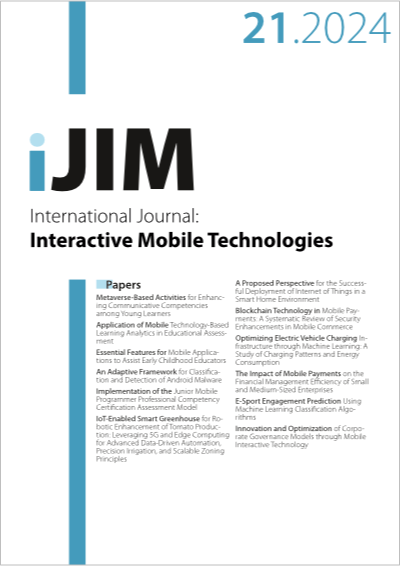Implementation of the Junior Mobile Programmer Professional Competency Certification Assessment Model
DOI:
https://doi.org/10.3991/ijim.v18i21.52031Keywords:
Assessment, competency certification, Junior ProgrammerAbstract
This study is based on the gap in human resources in the proportion of Indonesian workers lower compared to other ASEAN countries, including human resources in the IT sector. Another problem is that the assessment process and results in the junior mobile programmer scheme run by the Digital Technology Professional Certification Institute (LSP) have not been maximally tested; the assessment activities carried out have not fully implemented a technology- based system in a centralized and systematic manner, causing problems in the remote assessment process. Lack of involvement of professional associations, academics, and industry in designing tested and reliable assessment models. The specific aim of this study is to implement an effective junior mobile programmer professional competency certification assessment model. This study method is an experiment by implementing a professional competency certification assessment model for junior mobile programmers. The test subjects are participants in the results of the Ministry of Communication and Information’s Digital Talent Scholarship (DTS) Vocational School Graduate Academy (VSGA) training program, totaling 40 sessions, consisting of 20 sessions for the experimental class and 20 sessions for the control class. Data collection instruments include questionnaires, documentation, interview guides, observations, and competency tests. The study results prove that after being implemented, the professional competency certification assessment model for junior mobile programmers has proven to be effective.
Downloads
Published
How to Cite
Issue
Section
License
Copyright (c) 2024 Dony Novaliendry, Ahyanuardi, Irma Yulia Basri, Marthen Dangu Elu Beily, Fadhillah Majid Saragih, Insan Matin Hanif

This work is licensed under a Creative Commons Attribution 4.0 International License.



